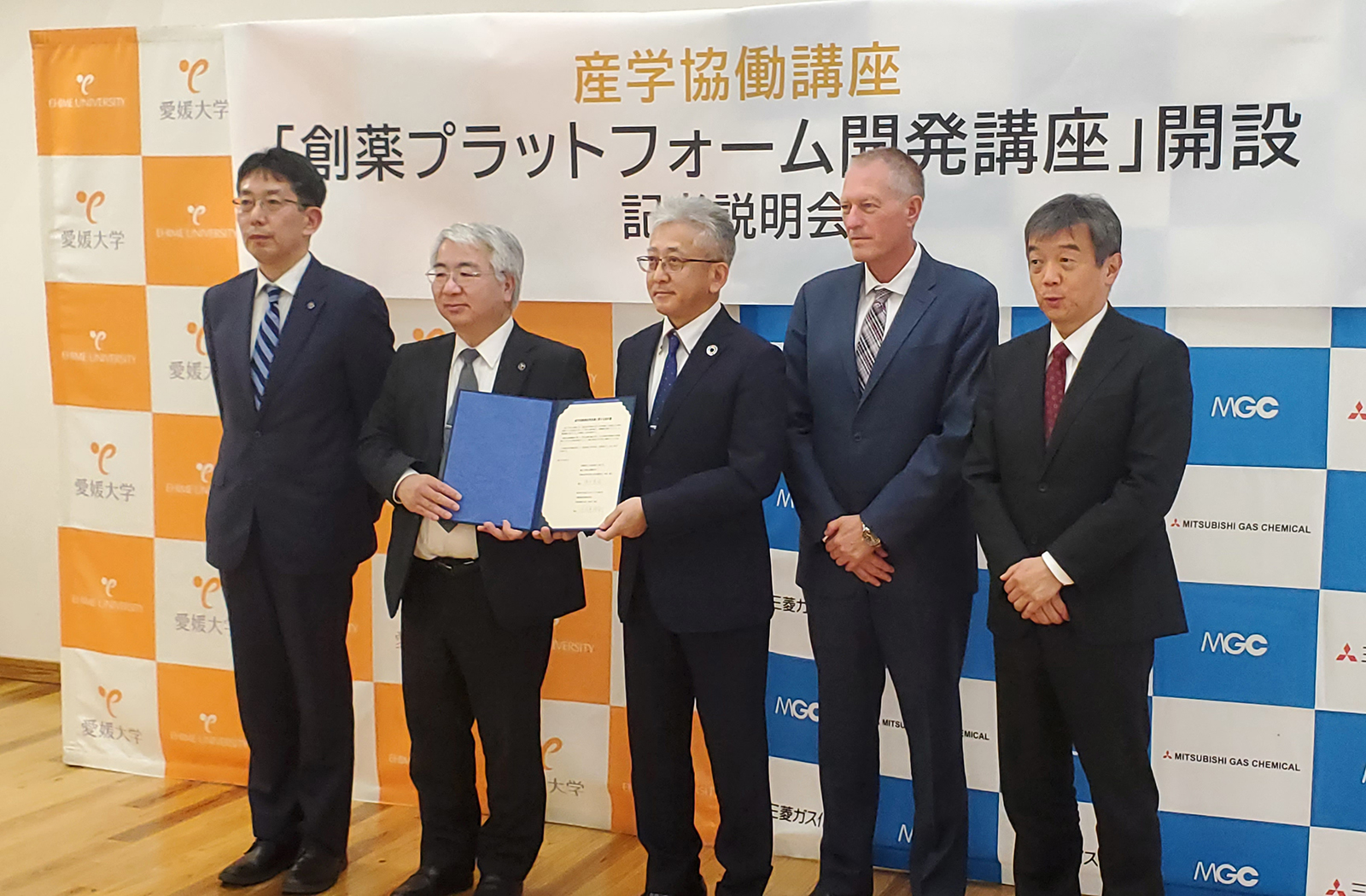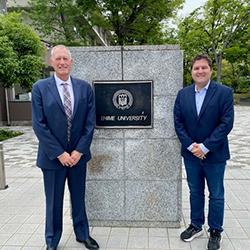
Technology Developed by ANBM to be Utilized for New Drug Discovery Program

Furthering the University of Arizona College of Medicine – Phoenix’s research mission to cultivate research both locally and globally, the Center for Applied NanoBioscience and Medicine (ANBM) has agreed to a technology development program and commercialization partnership with Mitsubishi Gas Chemical Company (MGC), Inc.
The collaboration will see the incorporation of ANBM’s drug discovery platform ASTEROIDS Microphysiological System (MPS) into the studies of researchers and clinicians at Ehime University in Matsuyama, Japan.
MPS is a technology that mimics the physiological aspects of human tissue and organ function. By incorporating it into the curriculum of Ehime University’s Drug Discovery Platform Development Program, Mitsubishi Gas Chemical Company, Inc. hopes to discover more effective ways to treat rare diseases through personalized care.

“This collaborative program will have an impact validating academic discoveries, producing outcomes that could be delivered to the patient,” said Frederic Zenhausern, PhD, MBA, director of ANBM and a professor of Basic Medical Sciences at the U of A College of Medicine – Phoenix.
As part of the partnership, researchers at ANBM will work together with the university to develop a humanized clinical model for studying immunological effects in patient-derived organoids. Ultimately, this will provide the platform for personalized immunotherapies.
To further their understanding of the technology, MGC will also be sending an engineer to work in ANBM’s lab. “The engineer will be trained to run experimental work using the ASTEROIDS, especially learning device assembly and cell culture protocols. He will then return to Ehime University to assist the physician researchers setting up and running the system,” Dr. Zenhausern explained.
Dr. Zenhausern and Jerome Lacombe, PhD, recently traveled to Japan to attend a press campaign to announce this groundbreaking partnership with MGC and Ehime University. While there, they met with reporters and journalists from several TV, radio and media outlets — including NHK Japan Broadcasting Corporation and Nikkei Biotechnology, a subsidiary of Nikkei Inc. After meeting with MGC CEO and other corporate leaders at the company’s headquarters in Tokyo, Dr. Zenhausern and Dr. Lacombe delivered lectures at the MGC Tokyo Research Center for staff and scientists at the company.
Their trip then took them to Ehime University, where they discussed logistical protocols for the study; explored further complimentary academic exchanges between ANBM and the university; hosted lectures for the School of Medicine; and visited the adjacent hospital facilities to see where the samples for the future studies will be collected.
This partnership comes at a crucial time for research. Currently, the Federal Drug Administration plans to phase out the use of animal testing in the development of monoclonal antibody therapies and other drugs with AI computational simulations and more human-relevant lab models. ANBM’s ASTEROIDS MPS could serve as a template for the future of targeted, physiological research to better understand the biological effects of advanced molecular and cellular therapies.
“The goal is to increase the adoption of MPS technology and demonstrate its relevance in clinical trials and future drug discovery applications. This will assist in establishing future regulatory guidelines and addressing the reduction of animal use by most regulatory agencies in Asia, Europe and the USA,” Dr. Zenhausern said.
About the College
Founded in 2007, the University of Arizona College of Medicine – Phoenix inspires and trains exemplary physicians, scientists and leaders to advance its core missions in education, research, clinical care and service to communities across Arizona. The college’s strength lies in our collaborations and partnerships with clinical affiliates, community organizations and industry sponsors. With our primary affiliate, Banner Health, we are recognized as the premier academic medical center in Phoenix. As an anchor institution of the Phoenix Bioscience Core, the college is home to signature research programs in neurosciences, cardiopulmonary diseases, immunology, informatics and metabolism. These focus areas uniquely position us to drive biomedical research and bolster economic development in the region.
As an urban institution with strong roots in rural and tribal health, the college has graduated more than 1,000 physicians and matriculates 130 students each year. Greater than 60% of matriculating students are from Arizona and many continue training at our GME sponsored residency programs, ultimately pursuing local academic and community-based opportunities. While our traditional four-year program continues to thrive, we will launch our recently approved accelerated three-year medical student curriculum with exclusive focus on primary care. This program is designed to further enhance workforce retention needs across Arizona.
The college has embarked on our strategic plan for 2025 to 2030. Learn more.